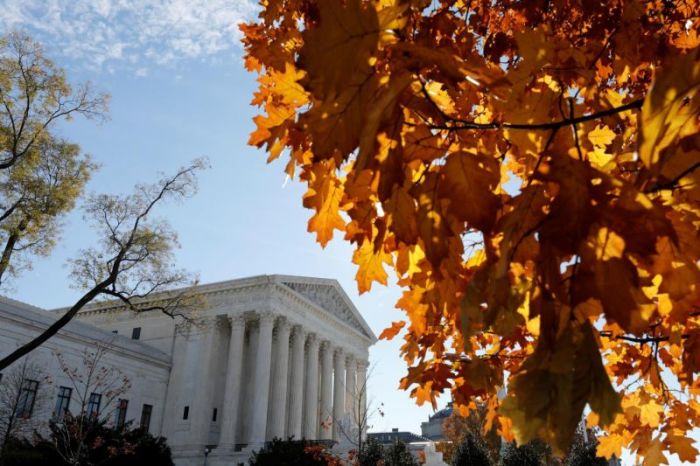Supreme Court Declines to Hear 2 Cases on Legislative Prayer, Leaves Contradictory Rulings in Place

The United States Supreme Court has declined to hear two cases dealing with the legality of prayer at legislative meetings, maintaining one municipal council's right to continue holding prayers and leaving another stuck with a lower court defeat.
The nation's highest court has declined to hear the cases of Bormuth v. Jackson County, Michigan, and Rowan County, North Carolina v. Lund. Both cases are similar in nature but with two opposite lower court rulings.
In Jackson County, Michigan, the tradition of legislative invocations at county commissioner meetings came under fire from a pagan activist named Peter Bormuth who tried to stop the tradition on grounds that doing so violated the Establishment Clause of the First Amendment.
That particular case was heard by the U.S. Sixth Circuit Court of Appeals on June 14, 2017. The court sided with the county commissioners and disagreed that prayer at legislative sessions violates the Constitution.
"Since the founding of our Republic, Congress, state legislatures, and many municipal bodies have commenced legislative sessions with a prayer," the opinion states. "Consonant with this historical practice, defendant Jackson County Board of Commissioners opens its public meetings with a prayer that is generally solemn, respectful, and reflective."
However, the Sixth Circuit's ruling conflicted with the ruling handed out in the Fourth Circuit, which ruled in 2017 against commissioners of Rowan County. The county was sued in 2013 by the American Civil Liberties Union over its prayer practice.
"The prayer practice served to identify the government with Christianity and risked conveying to citizens of minority faiths a message of exclusion," the 2017 Fourth Circuit ruling states. "And because the commissioners were the exclusive prayer-givers, Rowan County's invocation practice falls well outside the more inclusive, minister-oriented practice of legislative prayer described in Town of Greece."
The First Liberty Institute, a legal group aiding the local legislators in both cases, was hopeful that the Supreme Court would take up the matters to settle the contradictory rulings.
Justice Clarence Thomas wrote in dissent of the court's decision to pass on the Rowan County case that he would have granted the county's request of an appeal of the lower court ruling. Thomas was joined in his dissent by Justice Neil Gorsuch.
Although the Fourth Circuit cited the case of Town of Greece v. Galloway, Thomas argued that the only "real difference between this case and Town of Greece is the person leading the prayer." Prayers in Rowan County are led by the commissioners while prayers in the Greece case were led by guest ministers.
"In ruling that Rowan County must change the prayers it uses to open its board meetings, the Court of Appeals for the Fourth Circuit emphasized that the county's prayers are led by the legislators themselves, not by paid chaplains or guest ministers," Thomas wrote. "This analysis failed to appreciate the long history of legislator-led prayer in this country, and it squarely contradicted a recent decision of the Sixth Circuit."
Thomas said that the Fourth Circuit's decision is "both unfaithful to our precedents and ahistorical."
First Liberty praised the Supreme Court's decision in the Jackson County case but expressed disappointment with the result of the Rowan County case.
"Our country has a long history of legislator-led prayer, just as the Sixth Circuit determined in our favor," First Liberty Institute CEO Kelly Shackelford said in a statement. "Thankfully our clients in Jackson County, Michigan, will be able to continue their tradition. We hope the Supreme Court will one day extend that protection across the country."
Americans United for Separation of Church and State argued the case against Jackson County.
"If the residents aren't Christians, they might well feel like they're second-class citizens because only one religious view is being presented in these prayers," Alex Luchenitser, associate legal director for Americans United for Separation of Church and State, told MLive. "This practice in Jackson County discriminated against non-Christians and made non-Christians feel like outsiders who aren't fully represented by their local government."




























